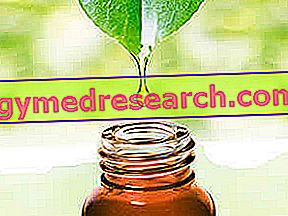What is Silymarin
Silymarin is a mixture consisting mainly of three substances: silibin (also called silibinin), silicristina and silidianina. This flavonolignan complex is found in various plants, especially in milk thistle, where it is originally present in the ratio 3: 1: 1 (silybin is therefore considered the most important component from a quantitative and qualitative point of view).
Silymarin is not present in the leaves of milk thistle, but is concentrated in the seeds and in the protein layer of the outer surface of the fruit.

Silymarin and Health
Health properties of silymarin
The importance of milk thistle has long been known in the phytotherapy field, where it is traditionally used to improve liver health and function.
The hepatoprotective effects of silymarin have been demonstrated both in vitro and in vivo, exposing the animals to toxic substances capable of inducing liver damage, such as ethanol (alcohol), phalloidin (a poison characteristic of fungi belonging to the genus Amanita), the carbon tetrachloride, paracetamol and thioacetamide.
Scholars have thus been able to appreciate the protective efficacy of silymarin and investigate its various mechanisms of action, mainly due to its ability to increase the synthesis of liver proteins and to inhibit that of inflammatory mediators and free radicals.
Silymarin is absorbed orally and excreted via the bile, with a half-life of approximately 6 hours.
In the medical field it is successfully used as an adjuvant in the treatment of hepatitis, chronic cirrhosis, liver poisoning and in case of poisoning by Amanita Phalloides . In sports it is recommended as a detoxifying product to be taken to limit the hepatotoxic effects of oral anabolic steroids.
Mode of use
Since silymarin is insoluble in water, if you want to fully enjoy the hepatoprotective and detoxifying properties of milk thistle, it is advisable to use standardized preparations, sold in the form of sugar tablets or capsules, rather than herbal teas. In the various clinical studies dosages averaged between 200 and 1000 mg of silymarin per day have been used.
Side effects
From the various clinical tests no particular negative or toxic effects have emerged, even at high doses. However, the laxative properties of silymarin are known, which appear when taken at high doses, probably due to its positive stimulus on synthesis and bile flow. Other minor side effects are reported in the literature especially in the gastrointestinal (nausea, swelling, dyspepsia).



